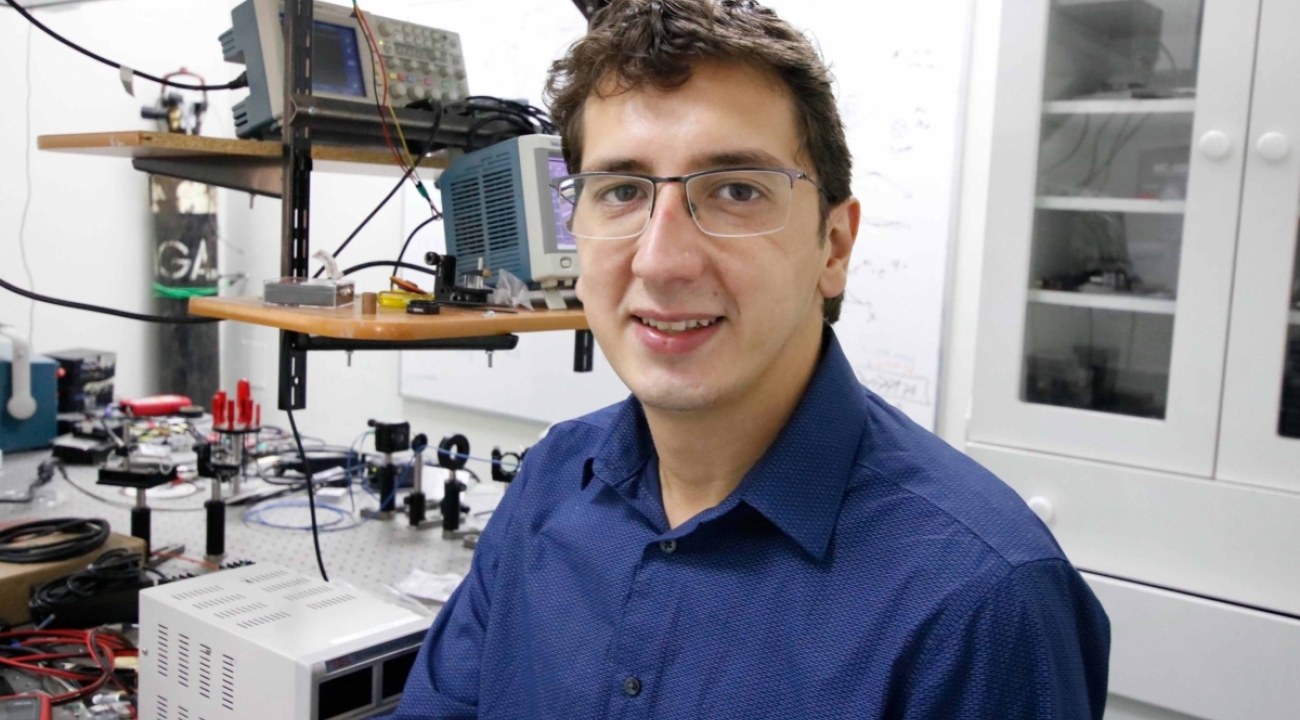
Pablo Solano, a former graduate student at JQI and current assistant professor at the University of Concepción in Chile, has been named a Canadian Institute for Advanced Research (CIFAR) Azrieli Global Scholar. Solano is one of 18 researchers selected this year from more than 200 applicants to receive support from the program.
“It is an honor to be selected from among such remarkable group of young researchers,” says Solano. “I’m glad to be part of the CIFAR community, engaging with scientist across disciplines, and having the opportunity to tackle challenging question with a broad perspective.”
The CIFAR Azrieli Global Scholars program supports early-career researchers that it identifies as pursuing high-risk, high-reward ideas. The awards provide each researcher with 100,000 Canadian dollars (approximately $77,500) in unrestricted research support. The scholars will also join one of CIFAR’s 12 research programs for at least two years.
“I would like to congratulate and welcome our seventh cohort of CIFAR Azrieli Global Scholars,” says Alan Bernstein, the president and CEO of CIFAR, in a press release. “They are amongst some of the most promising young researchers in the world.”
Solano completed his doctorate at JQI in 2017 with JQI Fellow and UMD emeritus physics professor Luis Orozco as his advisor. His research focused on quantum experiments using optical nanofibers—like optical fibers that efficiently carry light (including some internet connections) but with a section that tapers to a very narrow width. Specifically, he explored the way atoms can be trapped at the surface of a nanofiber and the resulting modifications of atomic properties that can be harnessed in experiments and maybe one day in practical technologies.
Solano’s has continued to study matter and light interactions and how atoms can be interconnected over a distance. This research brings together elements of atomic physics, quantum optics, and quantum information sciences and has potential applications in creating quantum networks, which are an important part of the developing technology of quantum computing.
“One of my goals is to explore the interactions among distant quantum systems, aiming to connect them to create something greater than the sum of the parts,” says Solano. “Coincidentally, to do so, one needs to connect knowledge from atomic physics, optics, nanophotonics, quantum information, and so on, with the hope of making something greater than the sum of the individual fields.”
Story by Bailey Bedford